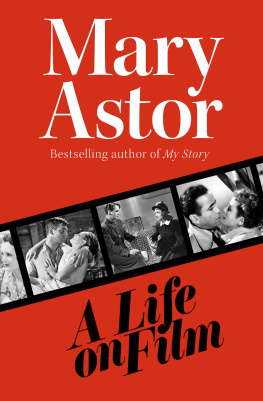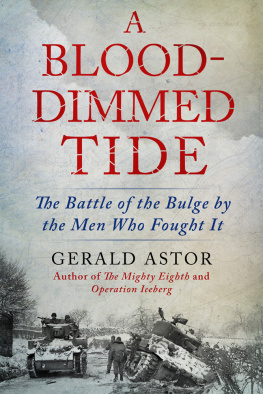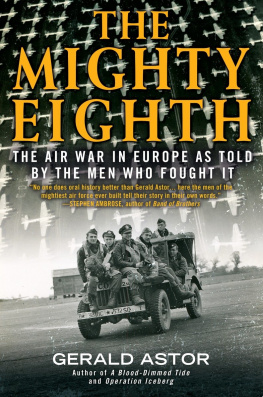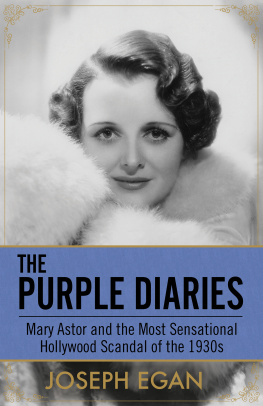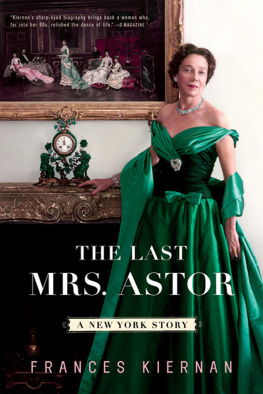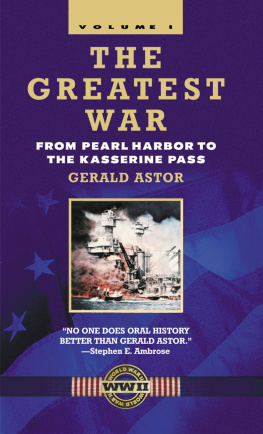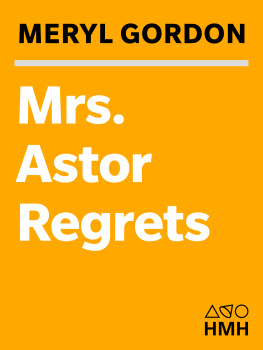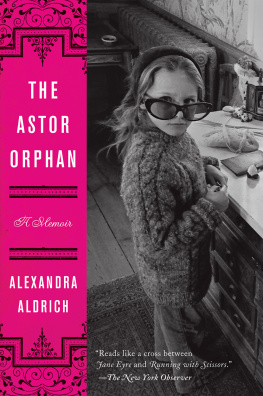Astor - A Life on Film
Here you can read online Astor - A Life on Film full text of the book (entire story) in english for free. Download pdf and epub, get meaning, cover and reviews about this ebook. year: 1967, publisher: Bantam Doubleday Dell, genre: Non-fiction. Description of the work, (preface) as well as reviews are available. Best literature library LitArk.com created for fans of good reading and offers a wide selection of genres:
Romance novel
Science fiction
Adventure
Detective
Science
History
Home and family
Prose
Art
Politics
Computer
Non-fiction
Religion
Business
Children
Humor
Choose a favorite category and find really read worthwhile books. Enjoy immersion in the world of imagination, feel the emotions of the characters or learn something new for yourself, make an fascinating discovery.
- Book:A Life on Film
- Author:
- Publisher:Bantam Doubleday Dell
- Genre:
- Year:1967
- Rating:3 / 5
- Favourites:Add to favourites
- Your mark:
- 60
- 1
- 2
- 3
- 4
- 5
A Life on Film: summary, description and annotation
We offer to read an annotation, description, summary or preface (depends on what the author of the book "A Life on Film" wrote himself). If you haven't found the necessary information about the book — write in the comments, we will try to find it.
Astor: author's other books
Who wrote A Life on Film? Find out the surname, the name of the author of the book and a list of all author's works by series.
A Life on Film — read online for free the complete book (whole text) full work
Below is the text of the book, divided by pages. System saving the place of the last page read, allows you to conveniently read the book "A Life on Film" online for free, without having to search again every time where you left off. Put a bookmark, and you can go to the page where you finished reading at any time.
Font size:
Interval:
Bookmark:
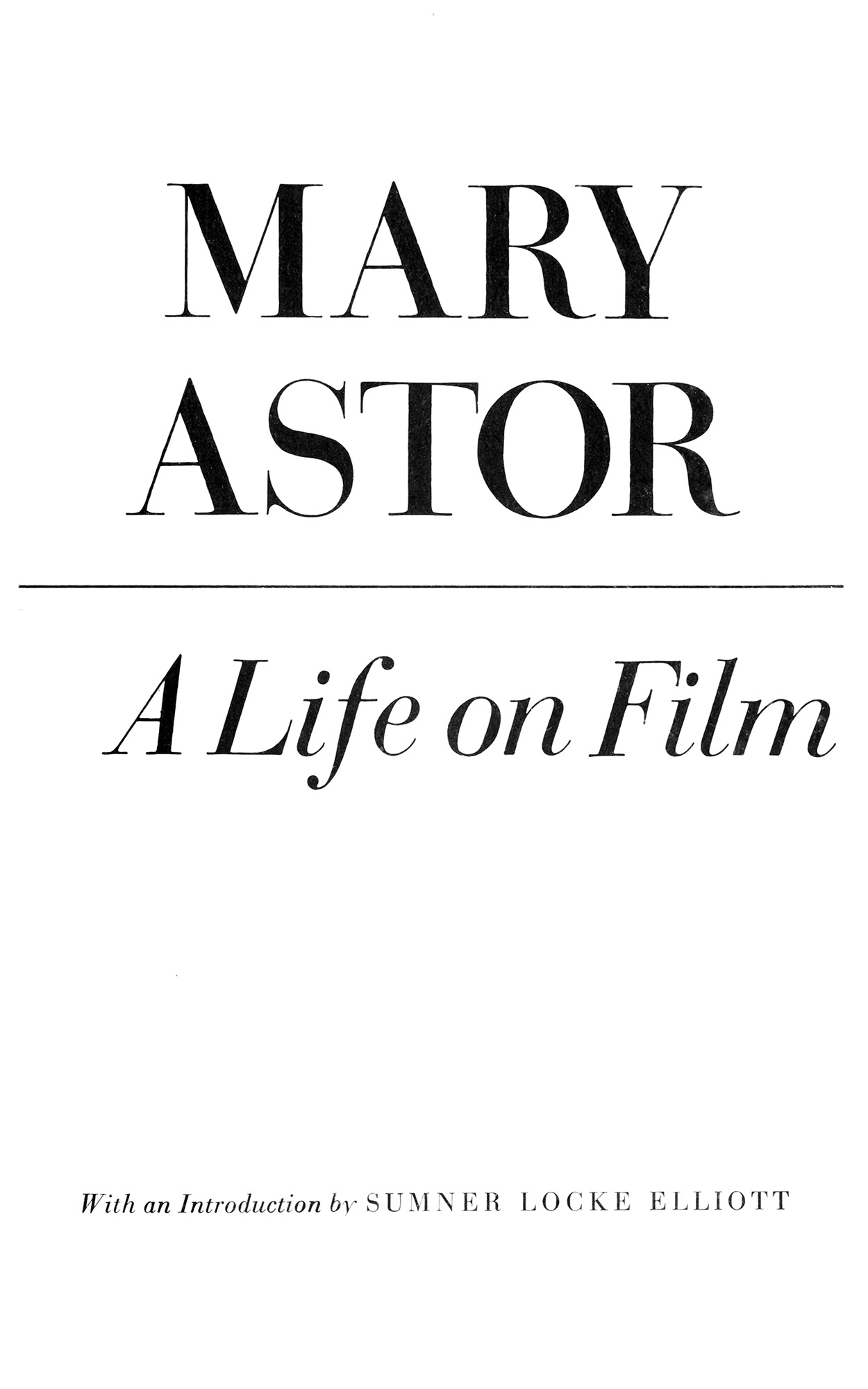
ALSO BY MARY ASTOR
FICTION
The Incredible Charlie Carewe
The Image of Kate
The OConners
Goodbye Darling, Be Happy
A Place Called Saturday
NONFICTION
My Story
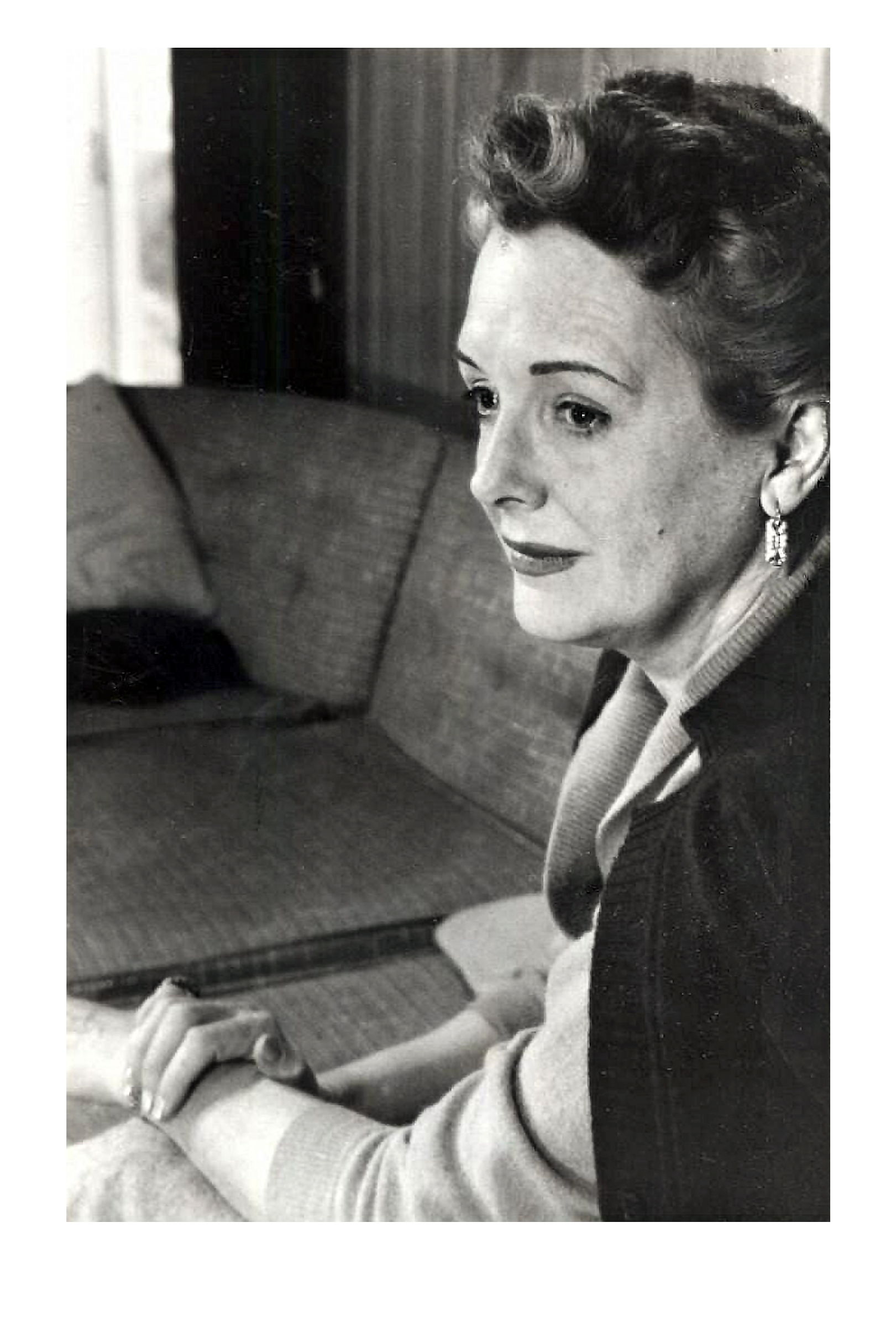
for
TONO and PATTI
BECAUSE THEY CARED
INTRODUCTION
They said they had got me Mary Astor to play the mother, so would I stop complaining about everything. They being the casting people for the then celebrated Philco Television Playhouse and this being sometime in the mid-1950s when I was one of the stable of writers under contract to the Playhouse. It had fallen to my lot in an unlucky moment to be the one conscripted to provide a play at short notice for the recently crowned Miss America, whose tour was being sponsored by Philco. Miss America was an enormously pretty girl and an enormously inexperienced actress; the director was green, too, and the hodgepodge play I had hastily put together to fit their idea was just a hair short of bathos. Besides, it was dead of winter, and the decaying ballroom where we rehearsed was unheated.
It was under these discouraging circumstances that I met Mary Astor. She was the first to arrive at the rehearsal roomin a heavy fur coat which she kept on. She was offhand, cool, rather like the role she played in Holiday, and she made no response to my nervous introductory joke when I said, naming a B picture she had once made, Well, Miss Astor, Trapped by Television I see.
We had the first reading of the play, and it was very much worse than we had imagined, and Miss America was very much worse than we had imagined, and Mary Astor said nothing but stared a lot over the top of her glasses, and I thought this is a woman that no one will get close to. To my surprise she asked everyone to autograph the front page of her script. She was collecting autographs, she said, from every television play she had done. It was the first intimation of what it took me a long while to realize: She nearly always likes the people she works with. What I had taken to be offhandedness was her way of covering her terror of live television. Anyway, in that ballroom, there she was, a good bit older than when she had won her Academy Award but not much changed; the darkly red hair in the mannish cut, that profile, the freckles, eyes the color of cracked hazelnuts. And the unique voice, a cello voice, Edith Cortrights voice in Dodsworth, a voice that has a trick to it: It can make a banal line seem intelligent; it has had experience doing that.
I was profoundly glad of that voice for the next ten days and sorry that it had to say lines like, Whats wrong, dear, is something troubling you? I was grateful for that voice as things went from bad to worse, as we chopped and changed and altered scenes that grew more banal, and swapped lines and motivations to disguise the inadequacies of Miss America. At one stage we had four different endings; swamped in indecision and arguments we asked Mary for her opinion. Which ending did she think right? The one that I have to learn tonight, she told us.
On the last day of dry rehearsals before this leaking, sinking ship of a play was transferred to the cameras, Miss America sat calmly aside from us and addressed her Christmas cards. Mary said to me, but not with malice, Isnt it wonderful not to know enough to be scared?
It was all live in those days, no safety of tape to be cut and repeated if something was direfully wrong. Mary played more than just a mother to the girl who quaked with terror when the red light flashed and we were on coast to coast. Miss America turned in a remarkably good performance, but we all knew who propped her up through it. Whats wrong, dear, is something troubling you? asked the deep, assuring, reassuring voice of experience. This is the voice of the actress who has been through it all; this is the calm of the veteran who can get you through even if the set falls down.
Mary is un-actressy, though, herself, one of the least actressy actresses I have ever known. She is no more given to ostentatious behavior than she is to big hats.
In fact, the impression she gives is more that of a successful woman lawyer: that has something to do with her native intelligence. This sense of intelligence has been a stamp on all her roles from the somber Antoinette de Mauban in The Prisoner of Zenda to treacherous Brigid in The Maltese Falcon. It may be the reason she was less successful in roles in which she had to subdue this quality behind sham; she has never been very good at sham; as a person there is so little sham in her that you wonder at her spending forty years working in artificial light.
It has always been the work she likes and not the limelight. Lets work, she says at rehearsal and if there is too much chat about it, Oh, lets get back to work.
I have seen her angry only once. She was again in a television play of mine (a better one and this time not as a mother but as a rich grasping woman) and she and George Grizzard were to do a scene from it for promotion on the Steve Allen show. I went with them to the studio where we were received with majestic indifference. (Where is Miss Astor to dress? Oh, the girls dress in Number 8.) Because the negligee that was being made for her was not yet finished, wardrobe had been told to send over a suitable substitute; instead of sending a flattering concoction of chiffon and bows, they had provided a tired old lace thing that had obviously seen duty a dozen times on the Hit Parade. I found a grim-faced Mary standing in front of the mirror in Number 8. Im supposed to promote in this? The eyes were like black glass. If they want me to promote theyve got to help a little to promote me. To the amazement and awe of a girls harmonica band sharing Number 8 with her, she ripped the lace horror from top to bottom (it was Sandra slapping the masseur in The Great Lie) and vented several good Anglo-Saxon opinions on the dress and the general apathy around the whole situation and declared that we would now leave. I knew this to be no idle threat.
People were sent running and a frothy thing not exactly right but better had been found for her, when I came upon her in the makeup room. Oh, I am lucky, she said. Have I ever found a good makeup girl. The fact was that the makeup girl was no more than competent. It was the Astor way of reparation. Now let me show you a few little tricks, she said to the glowing girl.
During the time we were working together on The Women for NBC , she came over to me one day and put something in my hand as she said, Read this when you have a minute. It proved to be several handwritten pages about Nancy, the part she was playing; Mary liked the part and had decided to write down her thoughts about this dame. I wish I had kept those notes because they were incisive and well written, and although neither of us knew it then, her first step toward what was to be a new career. Years later, she wrote down her thoughts about another dame, herself, and with that autobiography, My Story, launched her career as an author.
Very early in our friendship, I made a reference to one of her films and she froze me with, I hope youre not going to turn out to be a fan. One thing I never want to talk about is all those old movies.
Well, now she has written about all those old movies, all the years of them from the silents to the early talkies to the golden age and from leading lady to star to Tell mother rolesand has told all the things she craftily and stubbornly avoided telling in
Next pageFont size:
Interval:
Bookmark:
Similar books «A Life on Film»
Look at similar books to A Life on Film. We have selected literature similar in name and meaning in the hope of providing readers with more options to find new, interesting, not yet read works.
Discussion, reviews of the book A Life on Film and just readers' own opinions. Leave your comments, write what you think about the work, its meaning or the main characters. Specify what exactly you liked and what you didn't like, and why you think so.

